_______
The Most Painful (for Our Leftist Friends) Tweet of 2021
Two days ago, I shared the most morally reprehensible tweet of the year.
Today, we’re going to share a tweet that also is painful to read, but in this case only our friends on the left will be discomforted.
I’ve opined about Chile’s success and Venezuela’s failure on multiple occasions, but here’s the great José Piñera with an especially powerful comparison of the two nations.
This extraordinary graph is eloquent: the Chilean Model defeats poverty with liberty while the Venezuelan Model creates poverty with socialism.
If the free market candidate @joseantoniokast is elected President this year, Chile’s miracle will be back
I’ve had dozens and dozens of conversations with friends on the left about Chile and Venezuela and they have no response other than to sputter “Pinochet was a dictator!”
That’s true, I tell them, but please respond to my question about what we can learn when we compare Chile’s successful experience with economic liberty and Venezuela’s awful experience with statism.
At which point they bring up Pinochet again and refuse to deal with the actual data.
Speaking of data, since embedding a chart in a tweet sometimes doesn’t lead to the most user-friendly presentation, I went to the Our World in Data website to create my own version of Jose’s chart.
This type of chart looks at “relative changes” in per-capita economic output, so all nations start at the same place and we then examine which ones grew the fastest.
Or, in the case of Venezuela, which ones declined (and the ones, such as Argentina, that performed poorly).
Here’s another version of the chart, but this one gets rid of all the other nations so we can more easily compare Chile and Venezuela. As José Piñera wrote in his tweet, this is “extraordinary.”
Because Venezuela has a lot of oil, the nation’s economy does face exaggerated ups and downs as energy prices fluctuate.
But it’s easy to see a trend of economic stagnation (the nation’s energy industry was nationalized and is now collapsing, so that will augment Venezuela’s misery).
Our final version of the chat adds the average performance for the world and the average performance for Latin America. As you can see, Chile is still the best performer and Venezuela is still at the bottom.
I’ll close with two final observations.
- First, Venezuela’s decline is particularly sad because it had the world’s 10-freest economy back in 1970, but it’s been all downhill since then.
- Second, I’m worried about Chile, particularly since the left is pushing for a new constitution that focuses on entitlements rather than liberties.
But perhaps José Piñera‘s preferred candidate, José Antonio Kast Rist, will win this year’s election and save Chile from going in the wrong direction.
P.S. Venezuela used to be much richer than Chile, so it makes sense that Chile began to converge. But now the two countries are part of the anti-convergence club because Chile is now richer and continuing to grow much faster.
Improving Bad Government: The Case of Chile and Milton Friedman
I’ve written many times about the spectacularly positive impactof pro-market reforms in Chile.
The shift toward free markets, which began in the mid-1970s, was especially beneficial for the less fortunate (see here, here, and here).
But it’s quite common for critics to assert that Chile is a bad example because many of the reforms were enacted by General Augusto Pinochet, a dictator who seized power in 1973. And some of those critics also attack Milton Friedman for urging Pinochet to liberalize the economy and reduce the burden of government.
Are these critics right?
To answer that question, I very much recommend the following cartoon strip by Peter Bagge. Published by Reason, it accurately depicts the efforts of reformers to get good reforms from a bad government.
It starts in 1973, with a group of Chilean economists, known as the “Chicago Boys,” who wanted free markets.
In 1975, they invited Milton Friedman to help make the case for economic reform.
This 1982 strip shows some of the controversies that materialized.
But by the time we got to the 21st century, everything Friedman said turned out to be true.
Chile had become an “improbable success.”
This cartoon strip is great for two reasons.
- First, I’ll be able to share it with people who want to delegitimize Chile’s transition to a market-oriented democracy (ranked #14 according to the most-recent edition of Economic Freedom of the World). Simply stated, it was bad that Chile had a dictatorship, but it was good that the dictatorship allowed pro-market reforms (particularly when compared to the alternative of a dictatorship with no reforms). And it was great that Chile became a democracy (a process presumably aided by mass prosperity).
- Second, we should encourage engagement with distasteful governments. I certainly don’t endorse China’s government or Russia’s government, but I’ve advised government officials from both nations. Heck, I would even give advice to Cuba’s government or North Korea’s government (not that I’m expecting to be asked). My goal is to promote more liberty and it would make me very happy if I could have just a tiny fraction of Friedman’s influence in pursuing that goal.
P.S. Here’s Milton Friedman discussing his role in Chile.
P.P.S. While I disagree, it’s easy to understand why some people try to delegitimize Chile’s reforms by linking them to Pinochet. What baffles me are the folks who try to argue that the reforms were a failure. See, for instance, Prof. Dani Rodrik and the New York Times.
P.P.P.S. Critics also tried to smear Prof. James Buchanan for supporting economic liberalization in Chile.
—-
José Niño

Milton Friedman is the short one!!!
“The Power of the Market” episode of Free to Choose in 1990 by Milton Friedman (Part 5)
Milton Friedman The Power of the Market 5-5 How can we have personal freedom without economic freedom? That is why I don’t understand why socialists who value individual freedoms want to take away our economic freedoms. I wanted to share this info below with you from Milton Friedman who has influenced me greatly over the […]
___________________

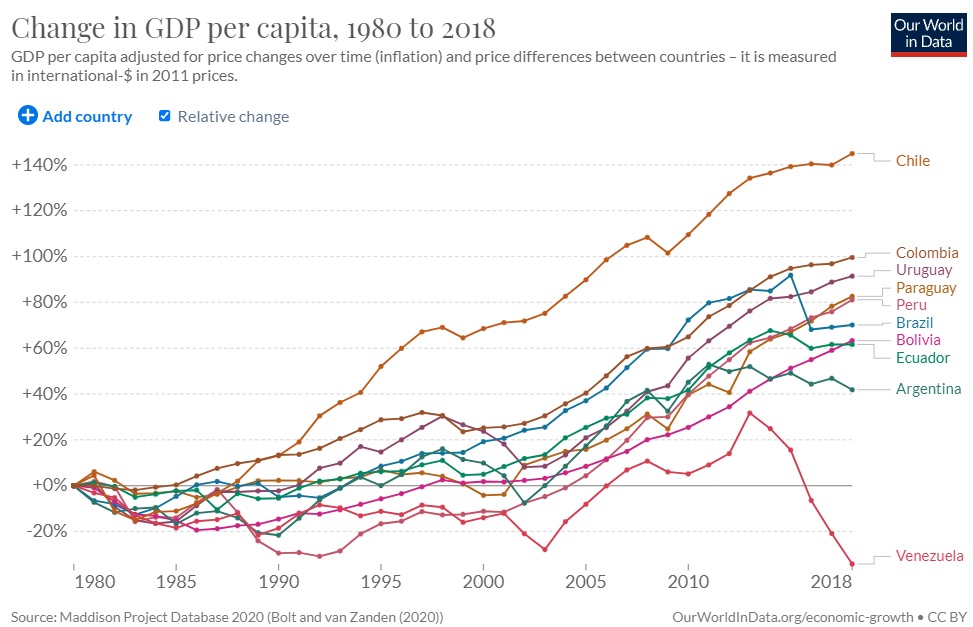
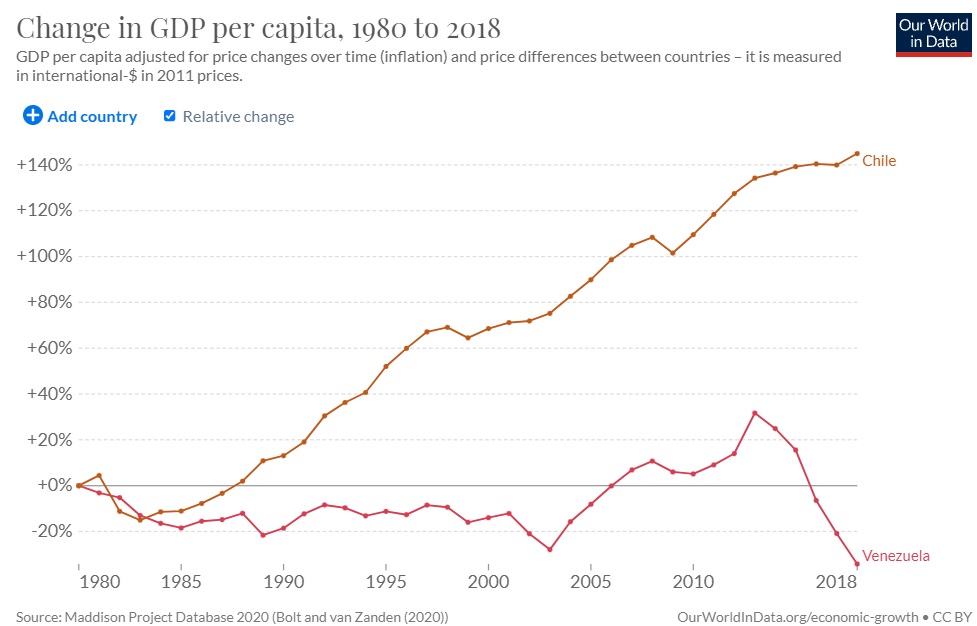
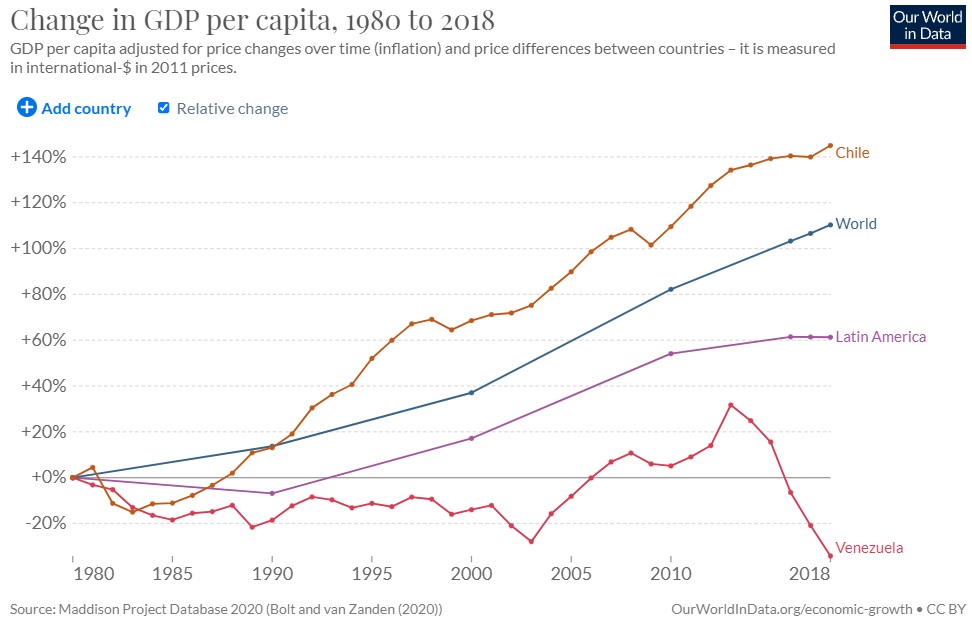
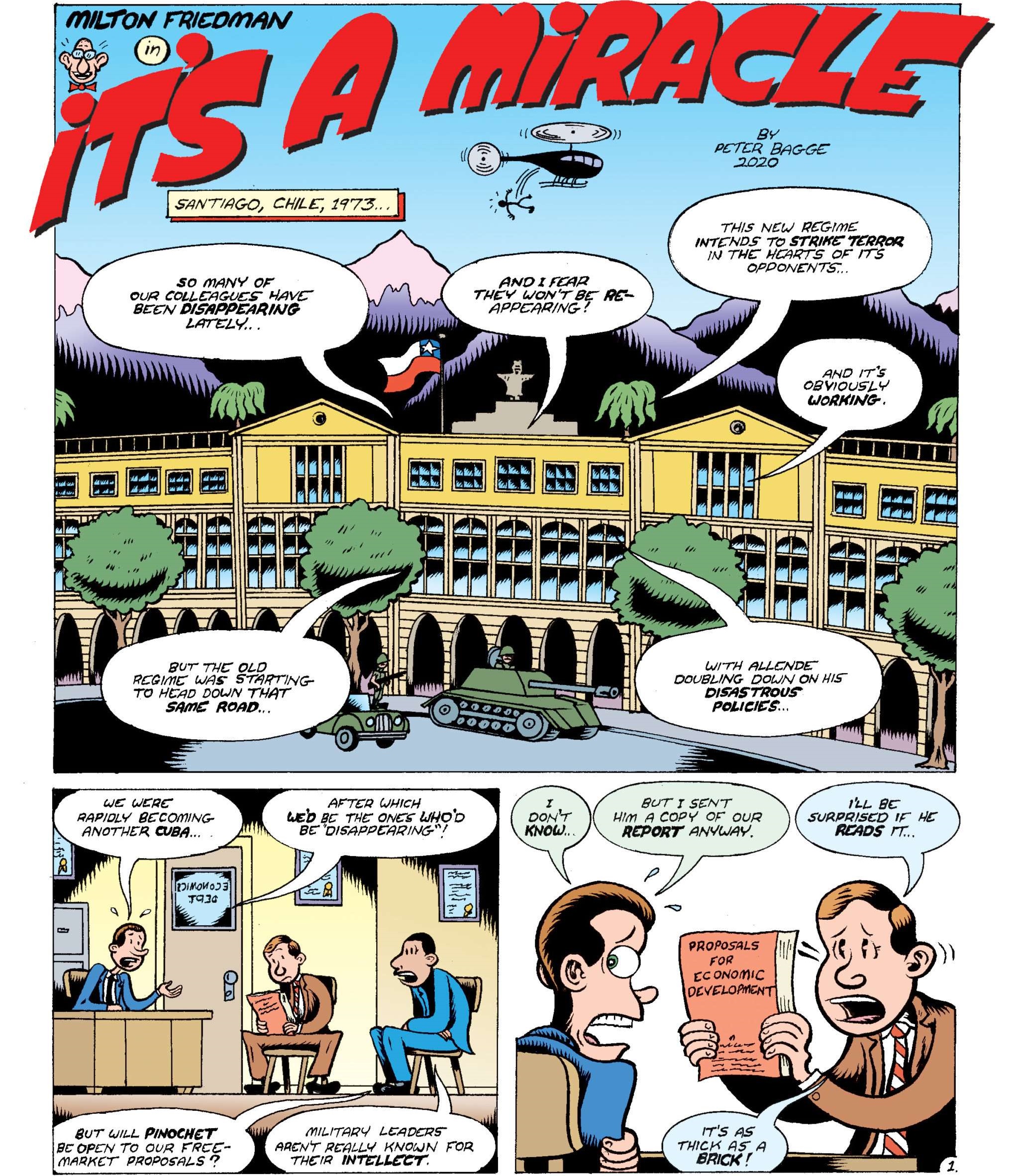
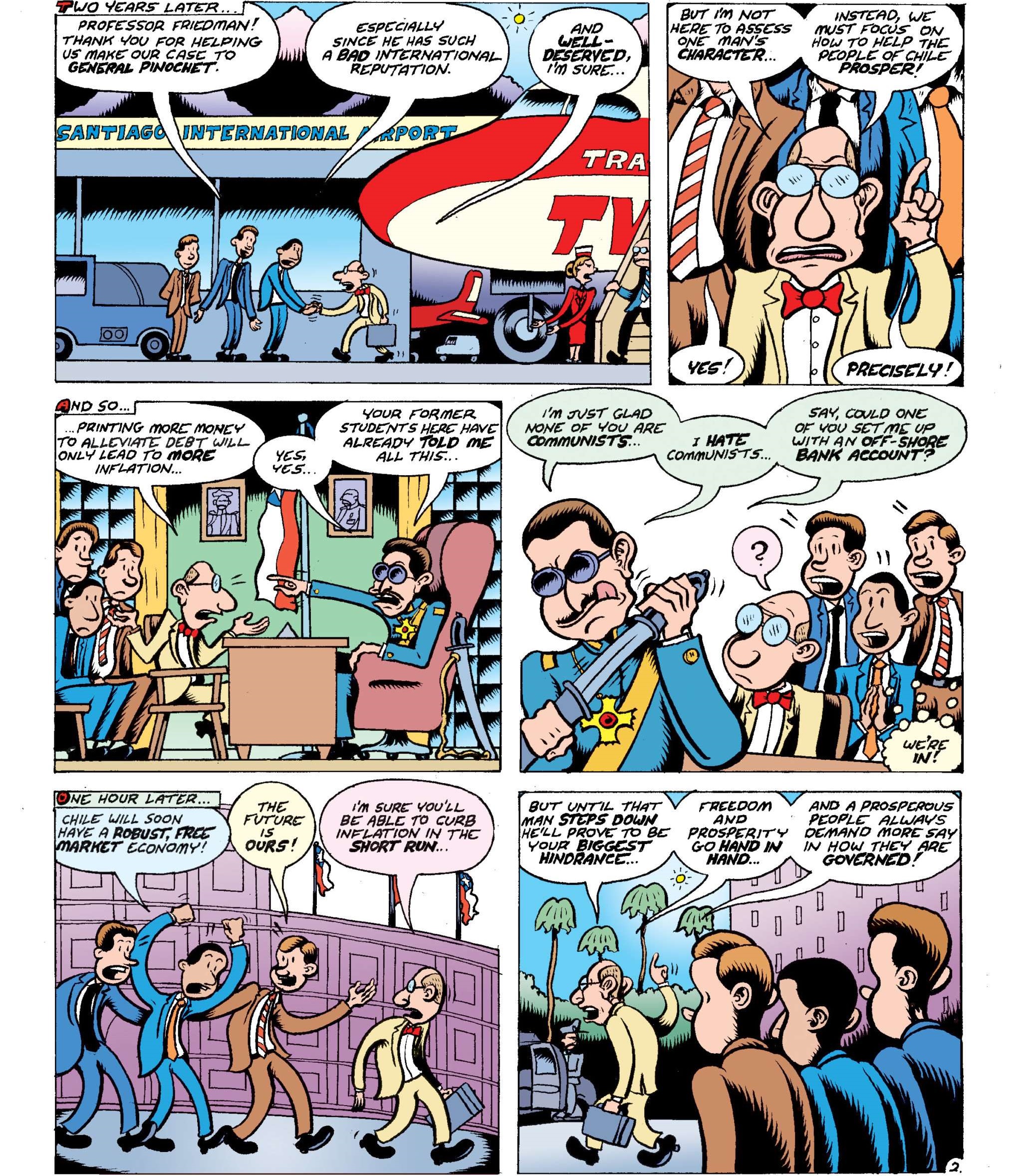
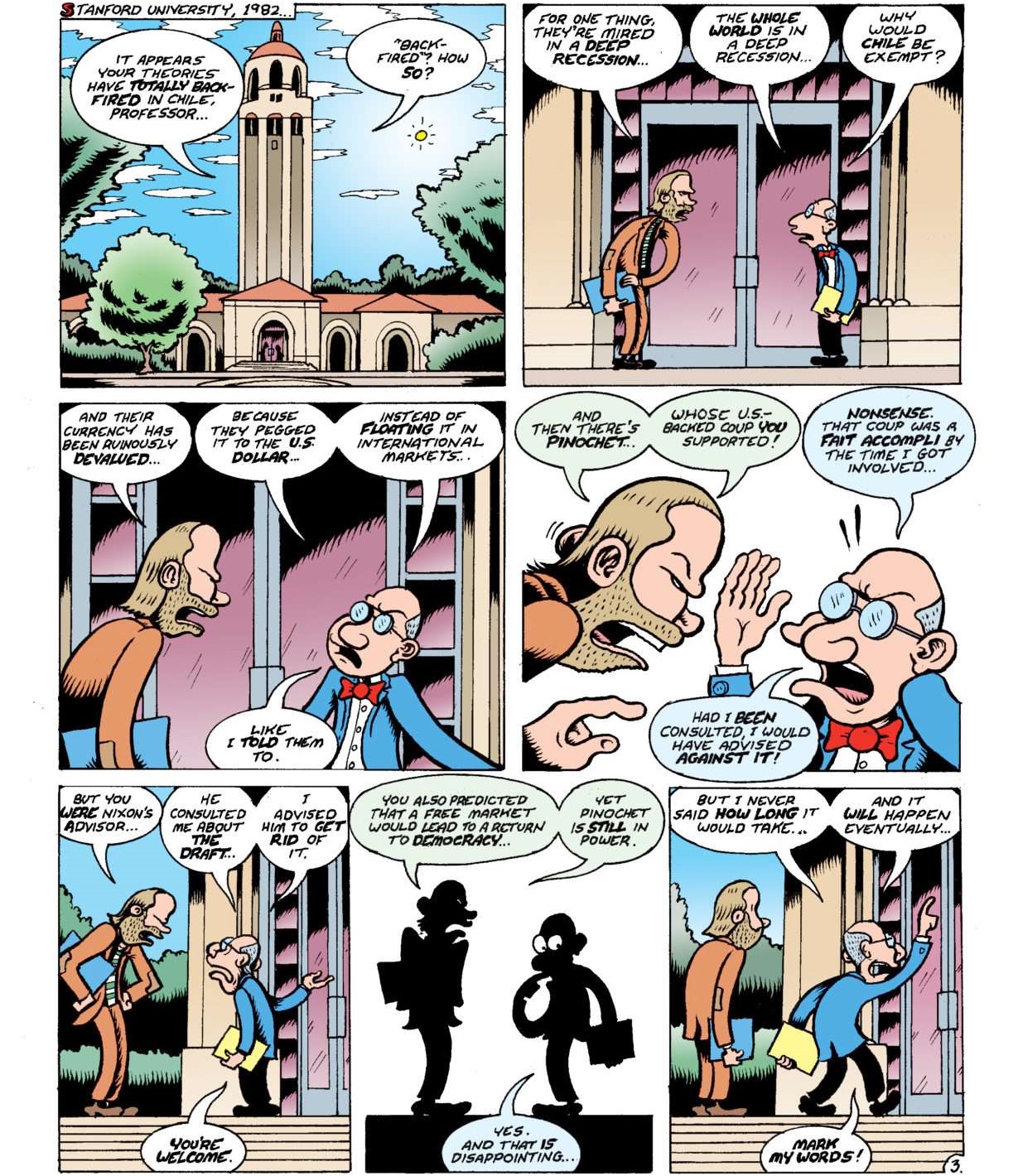
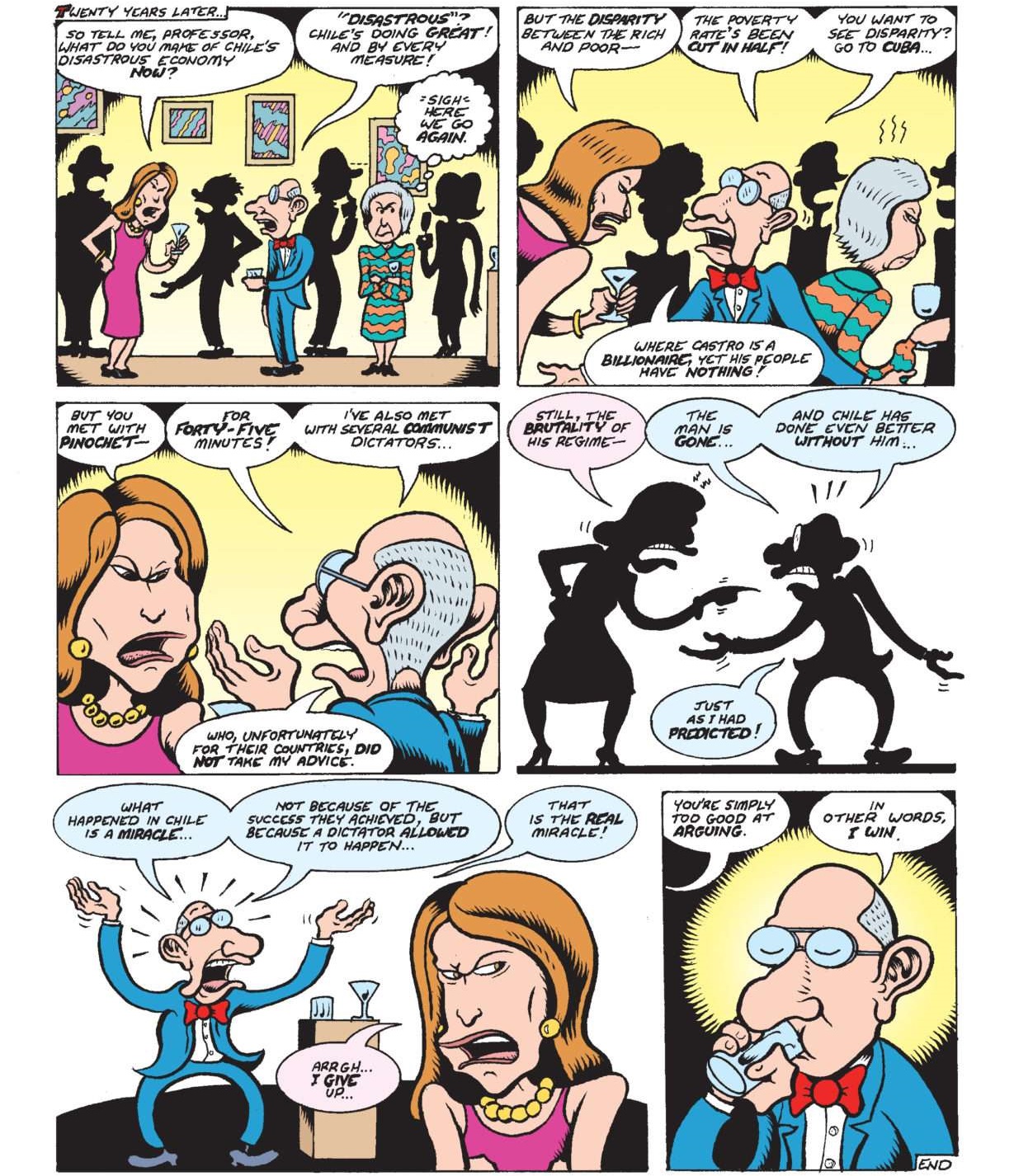


Comments
The GDP/cap charts show how Biden/Reagan exports of violent prohibition laws wrecked most South American economies between 1986 and 1992. Thanks for that.